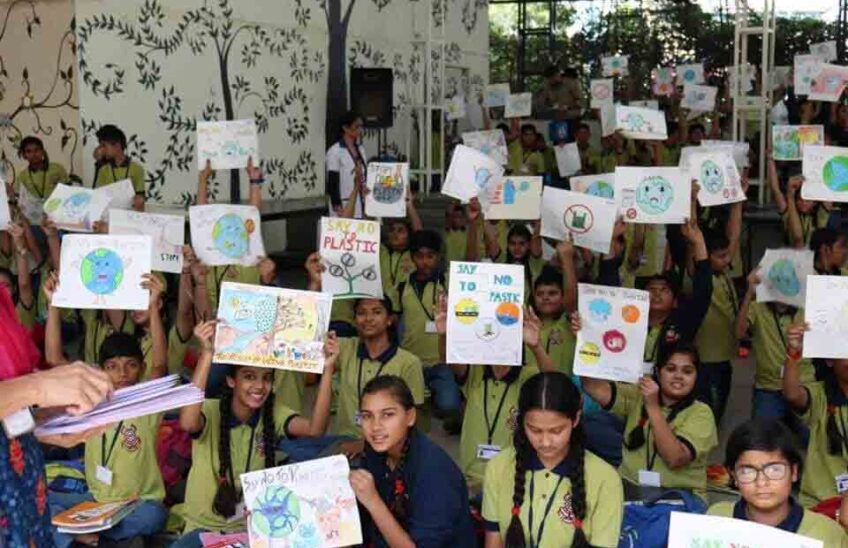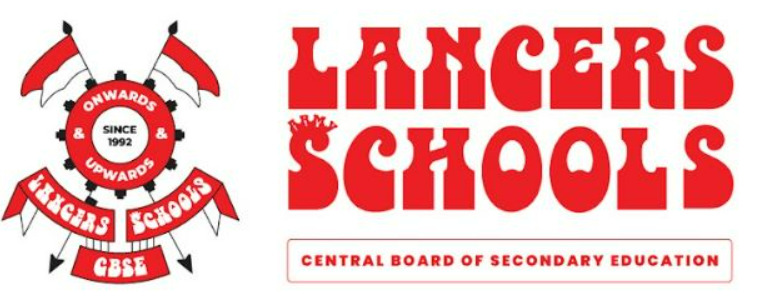
Enhancing CBSE education involves integrating innovative teaching methods, such as digital classrooms, personalized learning, and experiential learning opportunities. The best CBSE schools are adopting advanced technologies like AI-driven learning tools and virtual labs to foster a more engaging and effective educational environment. They offer students an apostolic experience through co-curricular activities so that they not only leave as academic achievers but the whole person. Still, there are some barriers e.g., there is the question of fairness when it comes to distributing resources in schools and proper preparation of teachers to use the new technologies. Institutions such as Lancers CBSE in Surat show how invention is possible by integrating ideas into education.
Modern Teaching Methods in CBSE Schools
CBSE schools have introduced dynamic techniques of teaching that are dramatically improving the style of teaching and learning. The use of technology, especially in the forms of tools and platforms in teaching and learning environment is one great progress. Virtual classrooms, AR, as well as AI determining the adaptive learning environment are phased in to address all students and their learning preferences. Besides, they not only enhance the processes of learning as more engaging and effective but also equip students with skills of the digital era.CBSE schools have introduced dynamic techniques of teaching that are dramatically improving the style of teaching and learning. The use of technology, especially in the forms of tools and platforms in teaching and learning environment is one great progress. Virtual classrooms, AR, as well as AI determining the adaptive learning environment are phased in to address all students and their learning preferences. Besides, they not only enhance the processes of learning as more engaging and effective but also equip students with skills of the digital era.
In addition, CBSE schools are emphasizing on doing skills based teaching learning procedures also. Excursions, activities and assignments within various projects are also an educational process characteristic; especially when students conduct experiments themselves that helps to develop their critical thinking abilities. Group interactions are promoted within classrooms to allow group study and enhanced communication among the learners. However, for these methods to be effective there is need to invest in infrastructure, human resource that specialises in teaching and professional development to be able to effectively incorporate the methods into teaching and learning. Thus, with their development, CBSE schools remain dedicated to bringing changes in teaching methods and create intellectuals of the new era.
Challenges in Implementing NEP 2020 in CBSE Curriculum
Implementing the National Education Policy (NEP) 2020 within CBSE schools presents several challenges amidst its transformative goals. It is pertinent to note that implementing and transitioning various frameworks used in the curriculum to meet the new NEP goal of teaching the whole child and in an interdisciplinary manner. Competing Goals: CBSE schools are supposed to modify the existing curriculum to include such novel courses as vocational and critical thinking courses, at the same time upholding educational quality. This process needs effective evaluation and efficiency in resource use if integration is going to be effective and not at the expense of academic standards.
Thirdly, the NEP 2020 also supports the emphasis on the competency-based education and assessment and continuous system as compared to the examination regime. New assessment methods fresh adopted by CBSE schools, are the most threatening issue because these methods should be implemented in a way that correctly assesses students’ skills and competencies in different domains. Also, it becomes essential to offer training for teachers to better prepare them to address such alterations. Another challenge to the reform that predicate from accessing quality and universal education particularly in the rural areas adds to the challenge. Nonetheless, CBSE schools remain as critical actors to achieve NEP 2020’s vision in paradigm shifting of Indian education system as more inclusive and skill-based.
Assessment Reforms in CBSE: Moving Beyond Traditional Exams
Current changes in CBSE assessments are inclining towards more than test and exam based approach that is more holistic and student friendly. The main one is the introduction of the continuous and comprehensive evaluation systems where students’ progress is frequently evaluated based on the tests, quizzes, projects, and presentations throughout the academic year. This change is to give an idea of students’ learning capacities as a complete portfolio such that they demonstrate not only their ability to reproduce facts and information but also their ability to reason, innovate, and solve problems as tested by learners’ performance on the options sections. With reference to the faced criticism, that exams cover particular contents once for extremely lengthy durations and reduce teaching-learning effectiveness, is true but CBSE schools are far better off in responding to different learning modalities and better student development.
Moreover, CBSE is contemplating on competency based assessments that go with the concept of mastering core competencies over knowledge retention. These assessments therefore test students’ competencies for use of knowledge in treating practical problems, as a way of enhancing mastery of learning. The use of digital assessment tools and system makes it easy to deliver feedback and the type of learning/teaching methods that fits a student best. However, to consider the aforementioned reforms, sufficient preparation for professionals, infrastructure for online assessments, and further assistance in assessments’ fairness and reliability ought to be provided. Furthermore, the assessment experiences and practices that CBSE keeps on injecting to improve on is focused at building the future needs of the learner by giving them the expanse of skills and competencies needed that transcend the scores.
Role of Extracurricular Activities in Holistic Development of CBSE Students
Sports & games and other co-curricular activities are a significant factor for molding the CBSE students of English medium schools by showing them the opportunity to exploit their aptitudes other than bookish knowledge. These co-curricular activities are as diverse as sporting events, music, drama, public speaking, fundraising for charity among others; these activities build other personal attributes like teamwork, leadership, time management, persistence among others. They enrich the academic curriculum as they present situations that may be useful for students’ training in the sphere of social and emotional development. Participation in sports and other co-curricular activities enhances the student’s quest for greatness through the discovery of his/her talents outside classroom study.
CBSE English medium schools recognize the importance of extracurricular activities in nurturing students’ overall development. Such activities not only aid in enhancing an individual’s physical health, but also enhance their psychological health as well as their imaginative and creative abilities. They prepare students for determination and demonstration of their talents and self-confidence that is crucial in any kind of career as well as in academics. Further, carrying out these activities inorganically helps students develop the feeling of onus they have towards their school and the society as a whole hence providing an able structure of education fit for the current complex world.
Frequently Asked Question
Q1.What role does continuous assessment play in the CBSE system?
A. It implies that such activity apart avails in improving an individual’s physical health; it also contributes to improving their psychological health and their creativeness. They precede students for determination and demonstration of their talents and self-confidence that are vital in any kind of career as well as in academic life.
Q2.What resources are available for students and teachers in CBSE schools?
A. The CBSE schools provide various kind of facilities to the students and the faculties such as the proper library, Scientific as well as computer Laboratories, Judicious, Games and Extra-curriculum Activities. The tutors are able to undertake professional development courses, teaching and learning resources and technological learning tools respectively.
Q3.How often is the CBSE curriculum updated?
A. Thus, the CBSE has the responsibility of revising its curriculum periodically to match the existing standings in education and the ever-evolving society. Generally, it is revised after every few years to add more subjects, changes in syllabi and modification in pattern of assessments.

